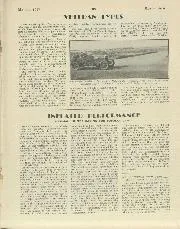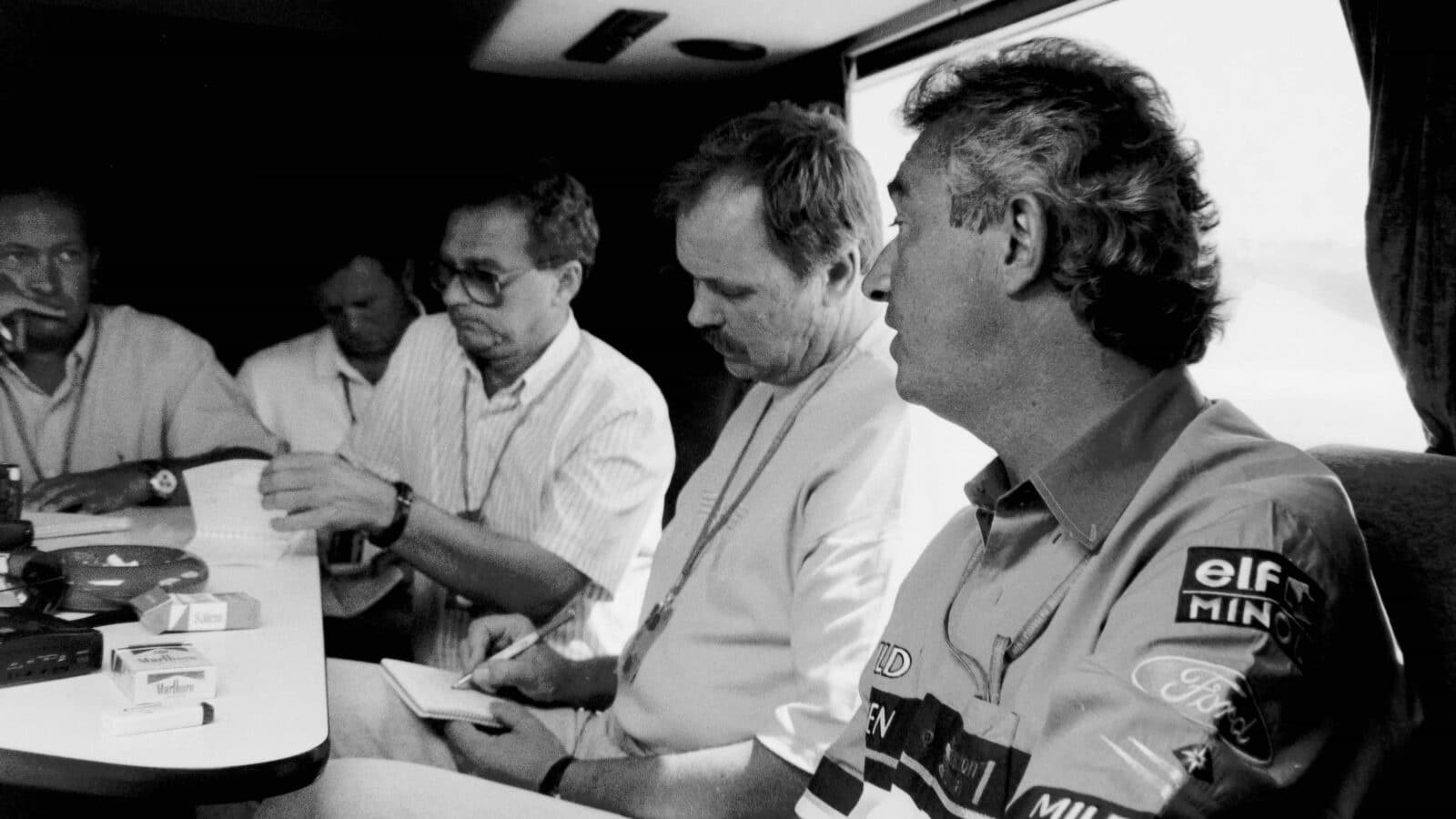
VETERAN TYPES
VUTEIPAN TYIDIES There are still quite a few enthusiasts who seek to run real he-stuff motor-cars, or who have an appreciation of cars with notable histories, and in the past…

Flavio Briatore was in the news for reasons good and bad in 1994. Thirty years on, nothing has changed. This is in the Benetton motorhome two days before the 1994 Hungarian Grand Prix. Flanked by writers from British national newspapers (The Sun’s Stan Piecha and Derick Allsop of The Independent on Briatore’s immediate right), the team principal is the centre of attention for several reasons: Michael Schumacher had ignored a black flag during the British GP; a Benetton had caught fire in the pitlane at Hockenheim amid claims the team had removed a filter from the nozzle to speed up the refuelling process; and there was suspicion over Benetton continuing to use banned traction control.
Underlying all of this, Briatore had written a letter in which he questioned the competence of Max Mosley following drastic changes to F1 cars in the aftermath of two fatalities at Imola. Briatore’s biggest mistake was believing the charge of technical ineptitude and the alleged risk to drivers’ lives would prompt the immediate end of Mosley’s tenure as FIA president. It had the opposite effect. A wounded president would prove to be 10 times more dangerous than a redundant one.
Briatore would continue to feel the effect 15 years later when found guilty of ‘Crashgate’ in Singapore and subsequently banned from F1 – supposedly for life. The instructing of Nelson Piquet Jr to crash deliberately to facilitate a win for Fernando Alonso hit new depths of dangerous deception, even in a sport not always noted for its moral rectitude. Not surprisingly, a recent recall to F1 by Alpine has caused as much controversy as Briatore ever created when running the same team (known variously as Benetton and Renault) between 1989 and 2009.
For those who worked with him, Briatore was lively and likeable company. This briefing in 1994 was eagerly anticipated. While being unsure of what the Italian was going to say next, you could guarantee his words would be salty. Provided you could understand them.
In-between puffs on an ever-present cigarette, Briatore would deliver a machine-gun dialogue of broken English, free of the soundbites that frequently reduce today’s media interviews to insipid responses. Political correctness had no place in Briatore’s repertoire. If he had an opinion, you would hear it. Forcefully.
On this occasion, Briatore showed us a report written on the Hockenheim accident. An independent expert referred to the FIA’s refuelling nozzle as “elegant in its simplicity but lacks the integrity vital in this type of application [refuelling under pressure rather than gravity feed]”.
There would be no further action taken over the Hockenheim fire. Briatore probably wishes other matters in his colourful career could have reached such a conclusion. Then again, judging by the latest events, he and others in F1 don’t appear to be bothered at all.